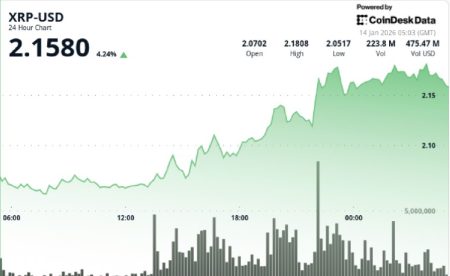The Crossroads of Traditional Banking and Cryptocurrency: Navigating the Regulatory Landscape
The intersection of traditional banking and the burgeoning cryptocurrency sector presents a complex regulatory challenge. FDIC Vice Chair Travis Hill has emerged as a vocal advocate for a more balanced and transparent approach to regulating crypto-related banking activities. He argues that existing policies, characterized by restrictive measures like "pause letters," have stifled innovation and created unnecessary barriers for banks seeking to engage with the digital asset ecosystem. Hill’s critique highlights the tension between fostering technological advancement and maintaining the integrity and stability of the financial system. He contends that overly cautious regulations, reminiscent of Operation Choke Point, a 2013 initiative targeting high-risk industries, could inadvertently push legitimate crypto activities outside the regulated financial sphere, increasing risks rather than mitigating them.
The Chilling Effect of Regulatory Uncertainty: Stifling Innovation and Collaboration
Hill’s central argument revolves around the detrimental impact of regulatory ambiguity on innovation and collaboration within the financial sector. The FDIC’s practice of issuing pause letters between 2022 and 2023, urging banks to postpone expansion into crypto-related operations, has created an environment of uncertainty, discouraging banks from exploring the potential benefits of blockchain technology. This cautious approach, according to Hill, has not only slowed technological progress within the financial sector but has also sent a chilling message to the broader crypto industry, hindering the integration of digital assets into mainstream finance. He underscores the need for consistent and predictable regulations that provide clear guidance to banks, enabling them to confidently navigate the evolving crypto landscape while adhering to existing financial laws.
Rethinking Regulatory Frameworks: Balancing Innovation and Risk Management
Hill’s vision for a more effective regulatory framework centers on promoting open communication and collaboration between banks and cryptocurrency companies. He advocates for a departure from restrictive policies and emphasizes the importance of fostering a regulatory environment that encourages responsible innovation within the digital asset space. He argues that the current regulatory landscape, characterized by a lack of clarity and consistency, has created a climate of fear and uncertainty, hindering the development of robust and compliant crypto banking services. Hill believes that fostering dialogue and cooperation between regulators, traditional financial institutions, and crypto firms is crucial for developing a regulatory framework that both supports innovation and mitigates the risks associated with digital assets.
Addressing the Challenges of Bank Secrecy Act Compliance in the Crypto Era
The Bank Secrecy Act (BSA) presents a significant challenge for banks seeking to engage with the crypto sector. Hill points out that the current interpretation and application of the BSA often incentivizes banks to close accounts associated with crypto activities, limiting access to financial services for legitimate businesses and individuals operating in the digital asset space. This de-risking behavior, driven by the fear of penalties for non-compliance, can have unintended consequences, pushing crypto transactions into less regulated or even illicit channels. Hill argues for a more nuanced approach to BSA compliance that recognizes the unique characteristics of crypto transactions and encourages banks to develop effective risk management strategies that allow them to serve crypto customers while upholding the integrity of the financial system.
Challenging the SEC’s Accounting Rules for Crypto Assets: A Call for Consistency
Hill also takes issue with the SEC’s accounting rules that require custodians to classify customer-held crypto assets as liabilities on their balance sheets. He argues that this approach deviates from traditional asset handling practices and creates unnecessary regulatory burdens for banks engaging in crypto custody services. This accounting treatment, according to Hill, distorts the financial position of custodian institutions and may discourage them from offering crypto custody solutions, limiting the development of a robust and regulated crypto custody market. He advocates for a more consistent and logical accounting treatment of crypto assets that aligns with existing accounting principles for traditional assets.
A Vision for the Future: Fostering Innovation and Financial Stability in the Digital Asset Age
As Hill prepares for a leadership role within the FDIC, he has pledged to promote a more open-minded approach to blockchain technology and advocate for fair regulations that balance innovation with financial stability. This commitment reflects his belief that the responsible integration of digital assets into the financial system is crucial for driving economic growth and fostering financial inclusion. He envisions a future where banks can confidently engage with the growing crypto industry, offering innovative and compliant services that benefit both consumers and businesses. Hill’s vision hinges on establishing clear and consistent regulatory guidelines that encourage responsible innovation, mitigate risks, and promote collaboration between traditional financial institutions and the dynamic world of cryptocurrencies. This collaborative approach, he believes, will pave the way for a more inclusive and innovative financial future.















